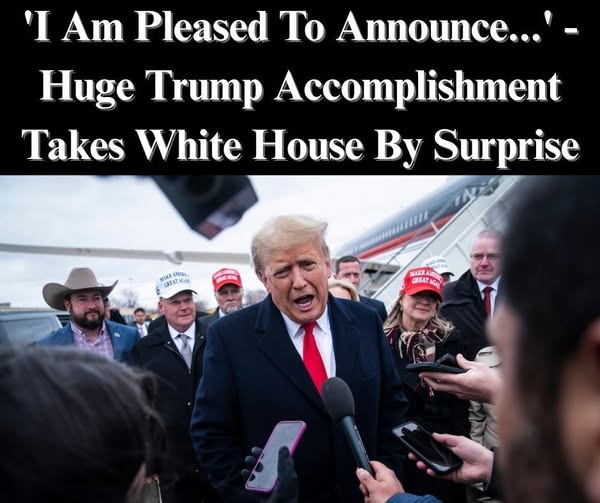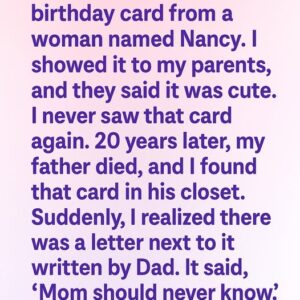
For those following international affairs and diplomatic developments, the past few months have been packed with tension, uncertainty, and—surprisingly—moments of unexpected resolution. Across continents, the headlines have been dominated by flaring hostilities, diplomatic posturing, and the potential for military escalation. Yet amid all the noise, a striking announcement has quietly begun to reshape the narrative—and its source may surprise many.
Over the past several weeks, leaders and diplomats from multiple continents have been quietly working behind the scenes to prevent a global security disaster. At the center of those efforts is a figure often at the heart of political and media storms: former U.S. President Donald J. Trump. This time, however, the conversation has shifted from controversy to commendation.
The recent developments have taken many by surprise—not just for their substance, but for their implications. In a time when diplomacy often seems reactive and ineffective, a series of coordinated actions and successful mediations have generated a wave of praise, albeit with some political skepticism. These events are now causing even Trump’s harshest critics to reevaluate his role on the global stage.
Trump’s Diplomatic Breakthrough Between India and Pakistan
Among the most significant headlines to emerge is the cessation of hostilities between India and Pakistan, two long-time nuclear rivals whose history is riddled with clashes over the disputed territory of Jammu and Kashmir. This conflict, reignited earlier this year, had quickly escalated to the point where full-scale war seemed not just possible—but imminent.
The crisis began on April 22 with a brutal attack that left dozens of Hindu tourists dead in Indian-administered Kashmir. India swiftly blamed militant groups with origins in Pakistan—specifically Jaish-e-Mohammed and Lashkar-e-Taiba—sparking international concern. While Pakistan denied involvement, tensions soared. By May 7, India had launched a wave of air and missile strikes on Pakistani military targets. Pakistan responded in kind days later.
The world watched anxiously, with concerns growing about how quickly the situation could spiral. What many feared was the beginning of another prolonged regional war, possibly with nuclear overtones. And then—suddenly—things changed.
On May 10, following what was described as a long night of shuttle diplomacy, both sides agreed to a complete and immediate ceasefire. The announcement was not made by the United Nations or any European power, but rather by Donald Trump himself.
“After a long night of talks mediated by the United States, I am pleased to announce that India and Pakistan have agreed to a FULL AND IMMEDIATE CEASEFIRE. Congratulations to both Countries on using Common Sense and Great Intelligence. Thank you for your attention to this matter!” Trump posted on his social media platform, Truth Social.
Pakistan Responds with Praise—and a Nobel Peace Prize Nomination
In a move that few saw coming, the Pakistani government issued a formal statement praising Trump’s role in brokering the peace and announcing its intention to nominate him for the Nobel Peace Prize.
“President Trump demonstrated great strategic foresight and stellar statesmanship through robust diplomatic engagement with both Islamabad and New Delhi, which de-escalated a rapidly deteriorating situation,” read the official statement from Islamabad. “This intervention stands as a testament to his role as a genuine peacemaker.”
Pakistan’s Prime Minister, alongside senior military and foreign affairs officials, echoed the sentiment in public appearances and interviews, emphasizing how rare it is for external mediation to yield such immediate results in South Asia. While Trump’s involvement in the region has long been controversial—particularly with India due to America’s historic alliance with New Delhi—this outcome may mark a turning point in his perception within the region.
A Pattern of Peacemaking?
The India-Pakistan breakthrough is just one in a growing list of successful mediations attributed to Trump’s direct or indirect involvement. The former president has consistently positioned himself as a dealmaker, and while his style has drawn criticism for being unorthodox, the results speak to a pattern that even critics must acknowledge.
Just days before the Pakistan announcement, the State Department revealed that Rwanda and Congo had agreed to sign a landmark deal aimed at ending years of bloody conflict in eastern Congo. That deal, brokered in part at the request of Congolese President Felix Tshisekedi, involved U.S. mediation led by Trump’s diplomatic team. Though details remain confidential, insiders claim Trump personally made calls to both sides urging de-escalation.
Earlier this year, another surprise emerged from Eastern Europe: renewed dialogue between Serbia and Kosovo following months of escalating tension. While the European Union had led initial rounds of talks, sources close to the matter indicate that Trump’s former peace team, still active informally, played a crucial role in facilitating the final agreement.
A Growing List of Achievements
Trump’s frustration with the Nobel Peace Prize process is no secret. In a recent post on Truth Social, he addressed the topic directly:
“This is a Great Day for Africa and, quite frankly, a Great Day for the World! I won’t get a Nobel Peace Prize for this, I won’t get a Nobel Peace Prize for stopping the War between India and Pakistan, I won’t get a Nobel Peace Prize for stopping the War between Serbia and Kosovo, I won’t get a Nobel Peace Prize for keeping Peace between Egypt and Ethiopia,” Trump wrote.
“I won’t get a Nobel Peace Prize for doing the Abraham Accords in the Middle East,” he added. “No, I won’t get a Nobel Peace Prize no matter what I do, including Russia/Ukraine, and Israel/Iran, whatever those outcomes may be, but the people know, and that’s all that matters to me!”
Though bitter in tone, the post underscores a larger theme—Trump sees his actions as repeatedly advancing peace, even if mainstream institutions do not publicly reward him for it.
The Legacy of the Abraham Accords
Indeed, Trump’s work on the Abraham Accords continues to serve as a centerpiece of his diplomatic legacy. Signed in 2020, these agreements normalized relations between Israel and several Arab nations, including the UAE, Bahrain, Morocco, and Sudan. Though the full potential of the accords has yet to be realized, they marked a seismic shift in Middle Eastern diplomacy.
While subsequent administrations have continued engaging with the process, many regional analysts agree that Trump’s administration laid the groundwork for a lasting change in how Arab-Israeli relations are approached.
Criticism and Controversy
Of course, not everyone is applauding. Critics have raised concerns about the long-term sustainability of these deals and the political motivations behind them. Others argue that Trump’s methods—favoring personal diplomacy and showmanship over institutional channels—create risks of miscommunication and misunderstanding.
Moreover, some international observers remain wary of bestowing accolades for short-term ceasefires that may not translate into long-term peace. In the case of India and Pakistan, for example, the region has a history of temporary lulls followed by renewed tensions. Kashmir remains a deeply divisive issue, and the ceasefire, while welcome, may not address the underlying causes of conflict.
A Historic White House Visit
Adding further weight to the Pakistani nomination was a landmark meeting between Trump and Pakistan’s military chief, Field Marshal Asim Munir, just days before the ceasefire announcement. This was the first time a Pakistani military leader had been hosted at the White House while a civilian government held power in Islamabad.
The meeting was described as productive and symbolic—a signal that both sides are open to deeper strategic cooperation, especially as the U.S. seeks to stabilize South Asia amid broader efforts to counterbalance Chinese influence in the Indo-Pacific.
What Comes Next?
If Trump is formally nominated for the Nobel Peace Prize, it would mark the second time his name has been submitted, the first being in 2020 for the Abraham Accords. Though the Nobel Committee does not reveal official nominations until 50 years later, individuals and countries are free to announce their intentions publicly.
The political fallout is already brewing. Supporters say it’s about time Trump’s peacemaking efforts receive due recognition. Detractors argue the nomination is politically motivated, citing Pakistan’s own strategic interests and Trump’s desire to bolster his international image ahead of the 2024 election cycle.
Regardless of opinion, what is clear is that Trump’s influence on the global stage has not diminished. In fact, it appears to be undergoing something of a renaissance.
Final Thoughts
Whether or not President Trump ultimately receives the Nobel Peace Prize, the events of the past few months speak to a broader transformation of his global image. From South Asia to Africa, the Middle East to Eastern Europe, Trump’s diplomatic fingerprints are surfacing in peace efforts across the world.
His supporters view him as a pragmatic dealmaker willing to speak the uncomfortable truths others avoid. His critics say he craves recognition and headlines more than results. But when nuclear conflicts are averted, long-standing feuds cooled, and new bridges built between old enemies, even the harshest judgment must wrestle with the outcomes.
As the global landscape continues to shift, and as wars persist in other regions, perhaps the more important question is not whether Trump deserves a peace prize—but whether his approach to diplomacy is ushering in a new paradigm for global conflict resolution.
For now, at least, one thing is certain: the world is watching.





